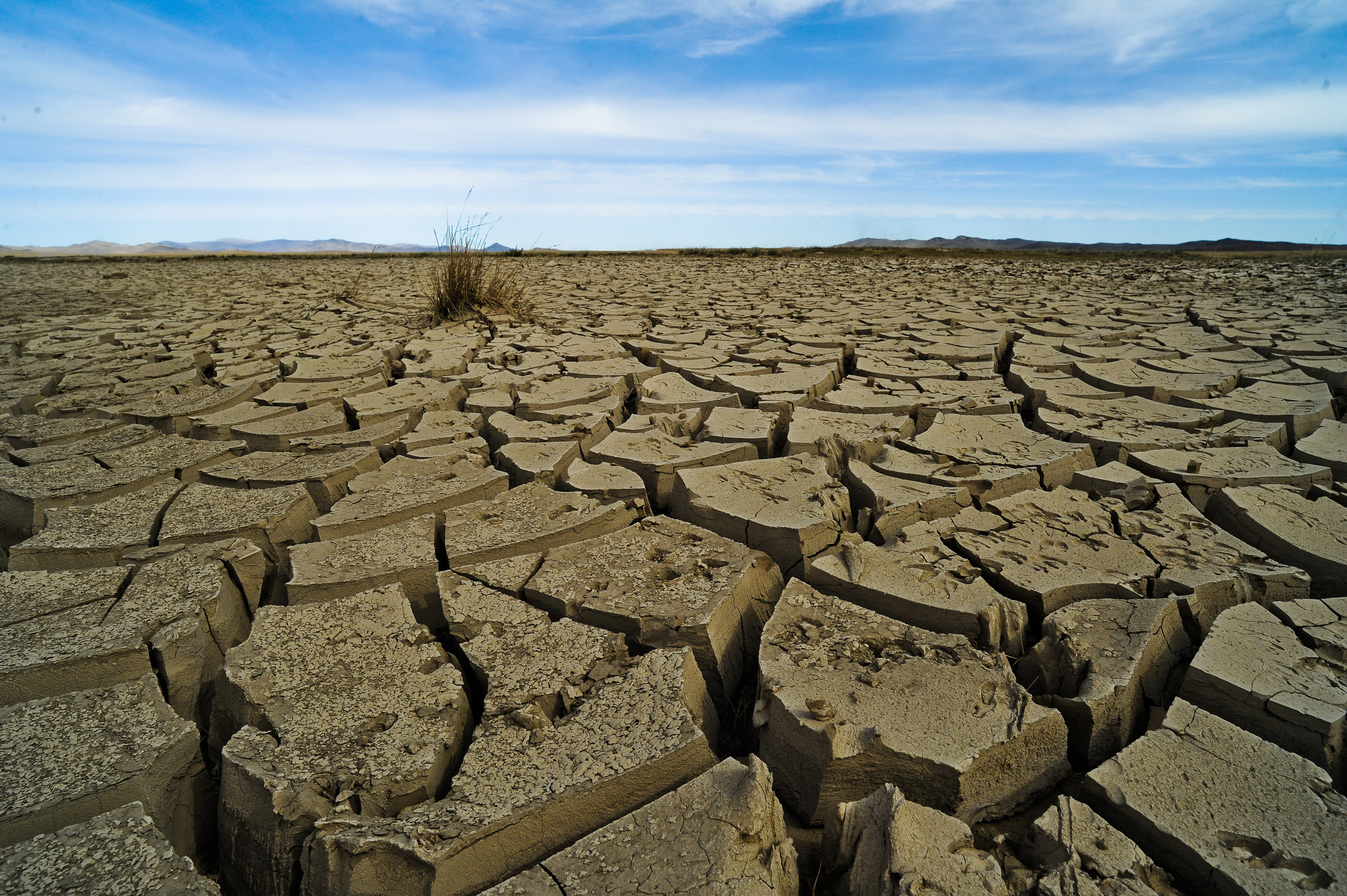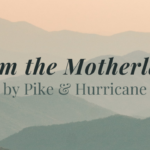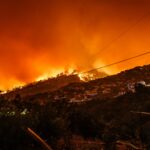This article was submitted as part of our writing competition on “What scares or excites you about the future?”.
At the time of the Industrial Revolution in the latter half of the 18th century, humanity started to have a significant effect on the environment and thereby a new geological era began – the Anthropocene. Humanity’s effect has since increased and now climate change, and by extension environmental and energy security, can be seen as the biggest challenge to our contemporary consumption-based society. Risk management measures suggest that the threats of climate change is highly probable and will have severe outcomes when manifested, and who dares to argue against this? The effects of rapidly increasing amounts of greenhouse gases, amplified natural disasters both in terms of numbers and destructiveness, disputes over natural resources and what seems as unceasing competition over fossil fuels, constitutes a quite compelling argument against the daring. Fortunately, this text is not created in order to scare, rather its purpose is to turn the tables and inspire a quite different attitude towards climate change and its seemingly intimidating consequences.
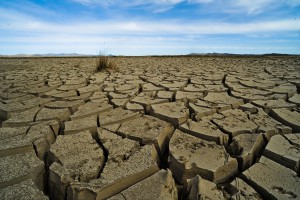 Even though I will attempt to put a positive spin on global climate change, this does not mean that I blindly welcome climate change because Sweden gains, from some perspectives, a more pleasant temperature and favourable environment. Instead, I believe environmental change opens up for a different perspective, a perspective which allows curiosity, excitement and even hope in the many apocalyptic predictions offered in contemporary times throughout popular science and mass media. Global environmental change, with all its dangers could be seen as humanity’s greatest opportunity to come together and work complementarily towards a common goal, which has proven to play an essential part in conflict resolution. It might also be a cause for a new policy, where our priorities change from competitive exclusionary politics and perceived valuable numbers – in other words, money – to something completely different.
Even though I will attempt to put a positive spin on global climate change, this does not mean that I blindly welcome climate change because Sweden gains, from some perspectives, a more pleasant temperature and favourable environment. Instead, I believe environmental change opens up for a different perspective, a perspective which allows curiosity, excitement and even hope in the many apocalyptic predictions offered in contemporary times throughout popular science and mass media. Global environmental change, with all its dangers could be seen as humanity’s greatest opportunity to come together and work complementarily towards a common goal, which has proven to play an essential part in conflict resolution. It might also be a cause for a new policy, where our priorities change from competitive exclusionary politics and perceived valuable numbers – in other words, money – to something completely different.
There is of course a risk that this will not happen, and even if it were to, it could be a development with worse effects than the contemporary political developments on the global arena. Do not take me as naïve; I do recognise the severity of our situation. Everyone will be affected in many ways, and unfortunately, those who will suffer the most are those who are already considered less fortunate and less secure today. Not only will poor populations be forced to move because of new extreme conditions geographically, but, as Simon Dalby puts it, “[t]he larger danger is that such tropes produce a policy environment where the rich and powerful use force to keep the poor and marginal away from their prosperous states”.
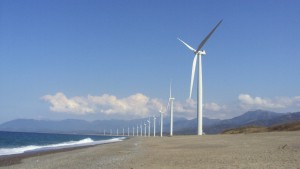 Dalby, amongst others, does point out that the effects of climate change affect trade routes, migration and resource conflicts, which in turn forces militaries to pay attention to what is happening in the biosphere. There lies a positive potential within the role of the militaries, since they may influence both politicians and corporate decision-makers to change their priorities to the urgent matter of environmental change and security. In other words, within the arena of security institutions, the matter of global environmental change is gaining ground, which can be seen as one step towards a new manner of security thinking and through this, new opportunities in policy-making.
Dalby, amongst others, does point out that the effects of climate change affect trade routes, migration and resource conflicts, which in turn forces militaries to pay attention to what is happening in the biosphere. There lies a positive potential within the role of the militaries, since they may influence both politicians and corporate decision-makers to change their priorities to the urgent matter of environmental change and security. In other words, within the arena of security institutions, the matter of global environmental change is gaining ground, which can be seen as one step towards a new manner of security thinking and through this, new opportunities in policy-making.
In addition to this, evolutionary theories speak of our survival instinct as one of the strongest found in human beings, and since we ourselves got us into this urgent state of being, it seems no more than fair that it is our responsibility to act. Many political discussions focus on who should respond to the increasing dangerous consequences of climate change and where the responsibility for it should be placed. This discussion unfolds when the people who made the Anthropocene era possible during the industrialisation of the West, and therefore can be seen as responsible for the unfortunate environmental developments, are dead. I therefore dare to argue that the focus of these political discussions is in dire need of change. Since we can expect further negative consequences of our actions in the upcoming decades, the urgency of the matter should be focused on what to do and which organisation, state, or human is most capable of executing it in the current situation. Surely, this seems like a utopian idea, but it is here my hope and excitement lies. Man’s creativity throughout the ages has long amazed and still amazes, so why should we stop hoping for creativity now? Apocalyptic forecasts are not helpful and have never been known as helpful in any situation in need of solutions. What is helpful, are people with enough courage to present creative and divergent ideas and for others to listen to these ideas and consider them as possessing something valuable, with something to contribute to the development of a sustainable human existence in the biosphere that we inhabit.
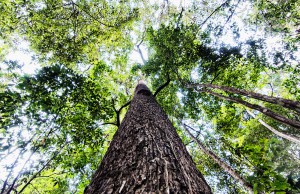 Some argue the necessity of completely revolutionising the capitalistic foundations we build our society on, others stress the importance of the military and security institutions as outlined above and I admit: I have no practical scheme to apply to new global governance which will trigger the development I hope for. But I do agree with Immanuel Kant whose idea of global perpetual peace lies in people’s self-interest and that sooner or later this will lead us in the right direction. John Horgan states in The End of War, that it is in every sane person’s interest to reach peace, and a common goal, such as environmental security, might help us get there.
Some argue the necessity of completely revolutionising the capitalistic foundations we build our society on, others stress the importance of the military and security institutions as outlined above and I admit: I have no practical scheme to apply to new global governance which will trigger the development I hope for. But I do agree with Immanuel Kant whose idea of global perpetual peace lies in people’s self-interest and that sooner or later this will lead us in the right direction. John Horgan states in The End of War, that it is in every sane person’s interest to reach peace, and a common goal, such as environmental security, might help us get there.
In order to summarise, I feel the need to state that no matter what we decide to do, where we decide to begin the process of transformation, and no matter which end to the process of transformation we choose to strive for, I believe that it is highly arguable that the need for a sustainable development within the framework of the capability of the Anthropocene is in all nations, all human beings interest. Excluding people through national borders and valuing finance over human lives will not solve the issues we face today. If we do not recognise the interconnected nature of all levels of all societies currently inhabiting this earth, we have no chance of making the fundamental readjustments necessary for the survival of the biosphere’s current populations. Conclusively, I am excited and curious to see what will spring out of the new developments that global environmental change will force us human beings to face. Hopefully, it will force us into a new era of collaboration and differing priorities where we acknowledge our interconnected state with each other and with the ecology of our planet.
By Timothy von Rohr
Image credit:
Picture 1: Asian Development Bank, licensed under CC BY-NC-ND 2.0
Picture 2: Paolo Dala, licensed under CC BY-SA 2.0
Picture 3: CIFOR, licensed under CC BY-NC 2.0
